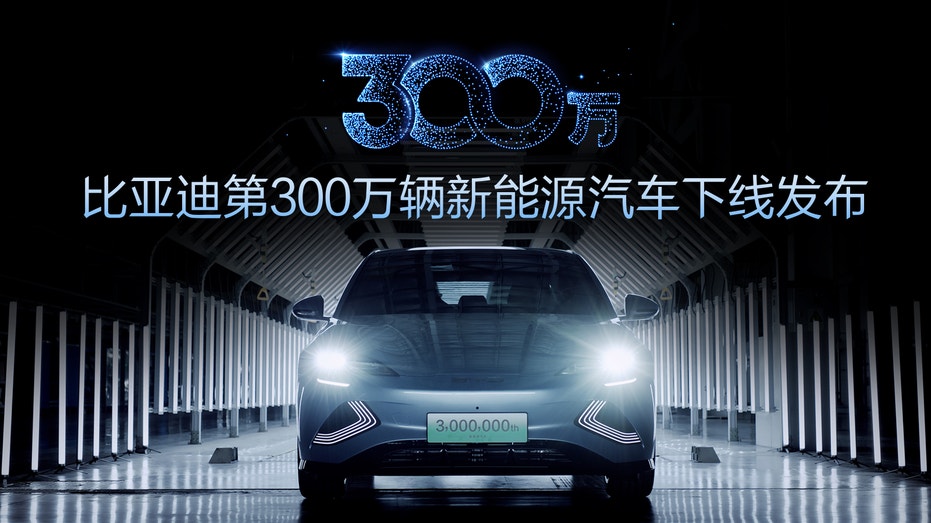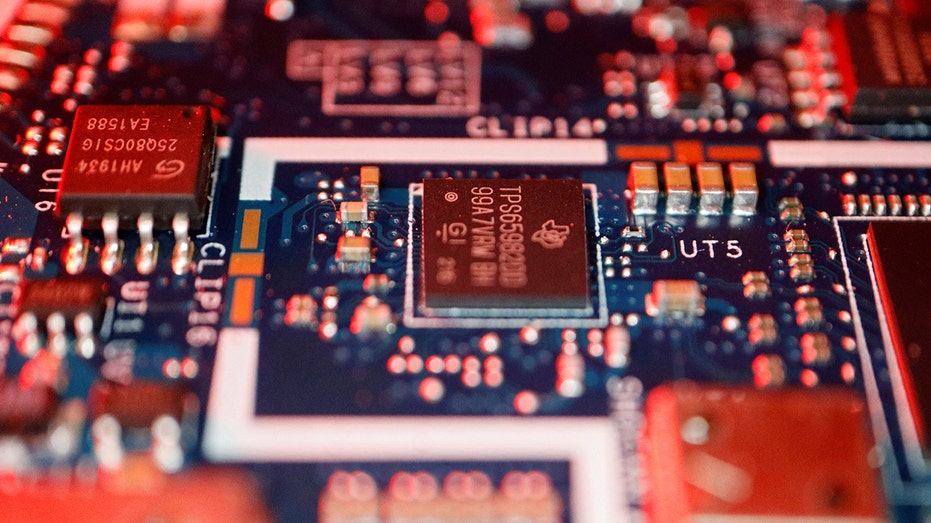Buffett-backed electric-car giant BYD halts spinoff of chip unit
Chinese company says IPO shelved to focus on booming electric-vehicle demand as chip bottleneck persists
Chinese electric-car giant BYD Co. said it is pausing the planned spinoff of its chip subsidiary, opting to focus on boosting the unit’s automotive-semiconductor output to meet rising demand for electric vehicles.
Warren Buffett-backed BYD said in a filing on Tuesday that it is shelving the spinoff of BYD Semiconductor and the company’s listing on the Shenzhen Stock Exchange until an unspecified date. It said it instead plans to accelerate investments in expanding its chip-making capacity, building on a recent investment in a chip factory in Jinan, in eastern China.
"BYD Semiconductor intends to seize the time window to make large-scale investment in wafer production capacity," the company said in a filing with the Shenzhen exchange, adding that it planned unspecified future investments in chip capacity. It said it would revisit the spinoff after the investments are complete and when the timing is appropriate.

The BYD subsidiary primarily builds chips used to regulate electrical power, optical sensors and other components used in electric vehicles. It focuses on supplying chips to BYD itself and has no outside revenue, said Hui He, a China semiconductor analyst at research firm Omdia.
TESLA BREAKS ITS CHINA FACTORY DELIVERY RECORD BUT TRAILS BYD
BYD is China’s largest maker of electric vehicles and competes with Tesla Inc. and other major auto brands globally. It also supplies batteries to outside vehicle makers.
| Ticker | Security | Last | Change | Change % |
|---|---|---|---|---|
| BYDDY | BYD CO. LTD. | 12.07 | +0.56 | +4.87% |
| TSLA | TESLA INC. | 411.11 | +13.90 | +3.50% |
Fueling its growth and keeping down costs, BYD has sought to vertically integrate much of its supply chain. It produces its own batteries and some of its semiconductors, helping it secure two of the most crucial EV components at a time when rivals are wrestling with supply-chain disruptions and chip shortages.
CHIP SHORTAGE THREATENS TO CURB CHINA'S MOMENTUM AS EV GLOBAL LEADER
BYD said in a 2021 filing outlining the spinoff that the transaction would allow the semiconductor unit to expand into a wider array of chips for industrial uses, home appliances, new energy products and consumer electronics, as well as boost the unit’s profitability.
Halting the planned spinoff comes as China has seen fast-growing demand for electric vehicles. Earlier this month, BYD said sales of its plug-in hybrid and battery-electric passenger vehicles more than tripled to 1.4 million units this year through October. BYD commanded 32% of the market for such vehicles in China in the third quarter, up from 21% a year earlier, according to Goldman Sachs.

New vehicles are parked for ready for export from a dockyard in Yantai in eastern China's Shandong province on Oct. 13, 2022. China's economic growth accelerated in the latest quarter but still was among the slowest in decades as the country wrestled (AP Newsroom)
In 2008, BYD attracted an investment of $230 million from Mr. Buffett’s Berkshire Hathaway. Its Hong Kong shares have soared more than 10-fold since. In its 2021 annual report, Berkshire Hathaway disclosed a 7.7% stake in the company. In August, the investment firm sold $46 million worth of shares in the company.
The industry has seen growth despite the broader slowdown in China’s economy, thanks in part to favorable government policies that include cash subsidies for buyers and purchase-tax exemptions.

Semiconductor chips are seen on a circuit board of a computer. Chips are a crucial component to most electronic devices. Supply had struggled to meet demand for microchips with the recent boom in electric vehicle production. (Reuters/Florence Lo / Reuters Photos)
Asia has seen a boom in public offerings by electric-vehicle companies and the firms that supply them this year, with tens of billions of dollars raised to date. Despite the turbulence in global markets, China’s domestic stock exchanges have seen 352 companies debut, raising 534 billion yuan, or about $76 billion, nearly catching up to last year’s total for the whole year.
CLICK HERE TO GET THE FOX BUSINESS APP
—Rebecca Feng contributed to this article.




















